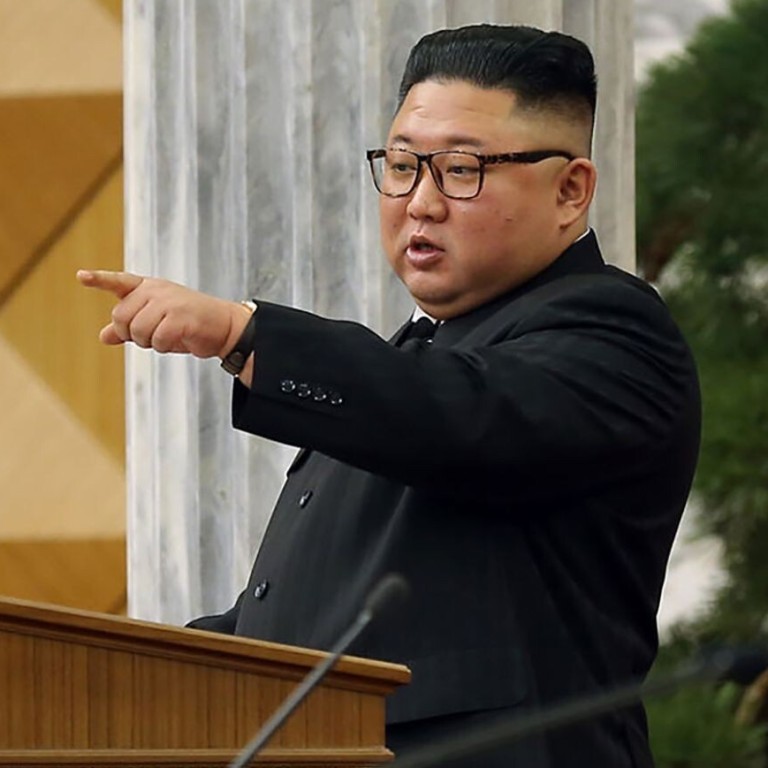
Kim Jong-un scolds officials for lacking ‘innovative’ ideas to save North Korean economy
- Kim fired a senior economic official as he criticised the performance of his cabinet during a party central committee meeting
- O Su-yong was named as new director of the Department of Economic Affairs, replacing Kim Tu-il who was appointed just last month
The report by state media on Friday comes during the toughest period of Kim’s nine-year rule. The diplomacy he had hoped would lift US-led sanctions over his nuclear programme is stalemated, and pandemic border closures and crop-killing natural disasters last year deepened the damage to an economy broken by decades of policy failures.
Some analysts say the current challenges may set up conditions for an economic perfect storm in the North that destabilises markets and triggers public panic and unrest.
North Korean hackers stole US$316 million in cryptocurrency last year
The current challenges had forced Kim to publicly admit that past economic plans had not succeeded.
A new five-year plan to develop the economy was issued during the ruling Workers’ Party congress in January, but Kim’s comments during the party’s central committee meeting that ended on Thursday were rich with frustration with how the plans were being executed so far.
During Thursday’s session, Kim lamented that the cabinet was failing in its role as the key institution managing the economy, saying it was producing unworkable plans while displaying no “innovative viewpoint and clear tactics”.

He said the cabinet’s targets for agricultural production this year were set unrealistically high, considering limited supplies in farming materials and other unfavourable conditions.
Kim added the cabinet’s targets for electricity production were set too low, showing a lack of urgency when shortages could stall work at coal mines and other industries.
“The cabinet failed to play a leading role in mapping out plans of key economic fields and almost mechanically brought together the numbers drafted by the ministries,” the KCNA paraphrased Kim as saying.
The KCNA also said that O Su-yong was named as the new director of the central committee’s Department of Economic Affairs during this week’s meeting, replacing Kim Tu-il who was appointed in January.
North Korea developed nuclear, missile programmes in 2020, UN report says
South Korean intelligence officials have said there are also signs that the North is taking dramatic steps to strengthen government control over markets, including suppressing the use of US dollars and other foreign currencies.
Such measures, which are apparently aimed at forcing people to exchange their foreign currency savings for the North Korean won, demonstrate the government’s sense of urgency over its depleting foreign currency reserves, analysts say.

